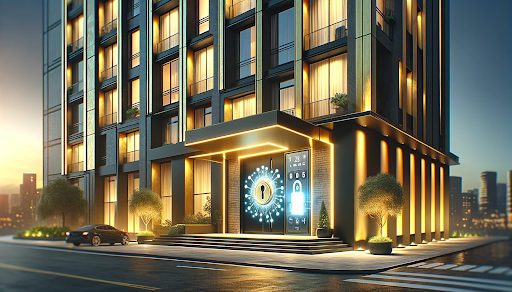In an age where digital transformation is more than just a buzzword, the security infrastructure of buildings is no exception to this evolution. While still widely used, the traditional key and lock mechanism are giving way to smarter, more secure, and more efficient solutions. Enter the era of smart locks - a technology that's reshaping the way property managers, chief security officers, and security company hiring managers think about building security. In this blog post, we'll dive into the world of smart locks, evaluating their benefits and considerations to help you decide if they are the right fit for enhancing your building's security.
What are Smart Locks?
Before we get into the nitty-gritty, let's define smart locks. Essentially, smart locks are electromechanical devices that allow you to lock and unlock doors with a command from an authorized device using a wireless protocol. They offer keyless entry, remote access, and the ability to grant or revoke access remotely. Sounds convenient. Let's break down the benefits and considerations to give you a comprehensive overview.
Benefits of Smart Locks
-
Enhanced Security: Unlike traditional locks, smart locks can offer encryption, making them more difficult to tamper with or hack. You can also monitor who enters or leaves your building in real time.
-
Convenience: Say goodbye to the hassle of copying keys or changing locks. With smart locks, granting or revoking access is just a few clicks away.
-
Remote Access: Manage your building's security from anywhere in the world. Control is at your fingertips whether you're on vacation or at a meeting across town.
-
Customization: Tailor access based on roles, time, and areas within the building. This flexibility is particularly useful for managing large teams or multiple tenants.
-
Integration: Many smart locks can integrate with other smart home devices and systems, creating a cohesive and comprehensive security system.
Considerations Before Implementing Smart Locks
While the benefits are plentiful, there are also important considerations to consider before making the switch to smart locks.
-
Cost: Initially, smart locks can be more expensive than traditional locks in terms of hardware and installation. However, the long-term benefits and efficiencies often offset these initial costs.
-
Compatibility: Ensure your doors and existing security systems are compatible with the smart locks you're considering. Not all smart locks work with all types of doors or systems.
-
Power Outages: Most smart locks are battery-operated. To prevent being locked out—or worse, locked in —it's essential to have a plan for power outages or battery failures.
-
Internet Dependence: Given their reliance on wireless protocols, smart locks require a stable internet connection. Consider the reliability of your internet service.
-
Security Concerns: While smart locks are designed to be secure, no system is entirely hack-proof. Stay informed about the latest security measures and updates for your chosen smart lock system.
Making the Decision
Deciding whether smart locks are right for your building comes down to weighing these benefits and considerations against your specific needs and circumstances. If you prioritize convenience, customization, and remote control, and are prepared to manage the initial costs and technical requirements, smart locks could significantly enhance your building's security infrastructure.
Implementation Tips
-
Start Small: Consider starting with a pilot program on a few doors to evaluate the system's effectiveness before a full-scale rollout.
-
Training: Ensure that your team is well-trained to use and manage the smart lock system to maximize its benefits.
-
Regular Updates: Keep the system's software updated to protect against vulnerabilities.
-
Feedback Loop: Establish a feedback loop with users to improve security measures and user experience continuously.
.png)
.png)
.png)

.png)
.png)

.png)
.png)
.png)
.png)
